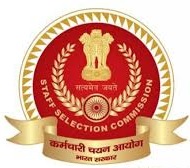
| Board | Staff Selection Commission [SSC] |
| Exam | Junior Engineers (Civil, Mechanical, Electrical, & Quantity Surveying & Contract) Examination |
| Download | Syllabus |
| Document Type | |
| Official Website | https://ssc.nic.in/ |
SSC JE Exam Syllabus
The standard of the questions in Engineering subjects will be approximately of the level of Diploma in Engineering (Civil/ Electrical/ Mechanical/Electronics) from a recognized Institute, Board or University recognized by All India Board of Technical Education. All the questions will be set in SI units.
Check All Latest Staff Selection Commission [SSC] Updates Here
Download SSC JE Exam Syllabus
| SSC Junior Engineers Exam Syllabus | Download Here |
SSC Junior Engineers Syllabus
The details of the syllabus are given below:
Paper-I
(i) General Intelligence & Reasoning:
The Syllabus for General Intelligence would include questions of both verbal and non-verbal type. The test may include questions on analogies, similarities, differences, space visualization, problem solving, analysis, judgement, decision making, visual memory, discrimination, observation, relationship concepts, arithmetical reasoning, verbal and figure classification, arithmetical number series etc. The test will also include questions designed to test the candidate’s abilities to deal with abstract ideas and symbols and their relationships, arithmetical computations and other analytical functions.
(ii) General Awareness:
Questions will be aimed at testing the candidate’s general awareness of the environment around him/her and its application to society. Questions will also be designed to test knowledge of current events and of such matters of everyday observations and experience in their scientific aspect as may be expected of any educated person. The test will also include questions relating to India and its neighbouring countries especially pertaining to History, Culture, Geography, Economic Scene, General Polity and Scientific Research, etc. These questions will be such that they do not require a special study of any discipline.
(iii) General Engineering (Civil and Structural), (Electrical & Mechanical):
Part-A: Civil Engineering
Building Materials, Estimating, Costing and Valuation, Surveying, Soil Mechanics, Hydraulics, Irrigation Engineering, Transportation Engineering, Environmental Engineering. Structural Engineering: Theory of Structures, Concrete Technology, RCC Design, Steel Design.
Part-B : Electrical Engineering
Basic concepts, Circuit law, Magnetic Circuit, AC Fundamentals, Measurement and Measuring instruments, Electrical Machines, Fractional Kilowatt Motors and single phase induction Motors, Synchronous Machines, Generation, Transmission and Distribution, Estimation and Costing, Utilization and Electrical Energy, Basic Electronics.
Part-C:Mechanical Engineering
Theory of Machines and Machine Design, Engineering Mechanics and Strength of Materials, Properties of Pure Substances, 1st Law of Thermodynamics, 2nd Law of Thermodynamics, Air standard Cycles for IC Engines, IC Engine Performance, IC Engines Combustion, IC Engine Cooling & Lubrication, Rankine cycle of System, Boilers, Classification, Specification, Fitting & Accessories, Air Compressors & their cycles, Refrigeration cycles, Principle of Refrigeration Plant, Nozzles & Steam Turbines. Properties & Classification of Fluids, Fluid Statics, Measurement of Fluid Pressure, Fluid kinematics, Dynamics of Ideal fluids, Measurement of Flow rate, basic principles, Hydraulic Turbines, Centrifugal Pumps, Classification of steels.
Paper II:
Part-A : Civil & Structural Engineering
Civil Engineering:
Building Materials :
Physical and Chemical properties, classification, standard tests, uses and manufacture/quarrying of materials e.g. building stones, silicate based materials, cement (Portland), asbestos products, timber and wood based products, laminates, bituminous materials, paints, varnishes.
Estimating, Costing and Valuation:
estimate, glossary of technical terms, analysis of rates, methods and unit of measurement, Items of work – earthwork, Brick work (Modular & Traditional bricks), RCC work, Shuttering, Timber work, Painting, Flooring, Plastering. Boundary wall, Brick building, Water Tank, Septic tank, Bar bending schedule, Centre line method, Mid-section formula, Trapezodial formula, Simpson’s rule. Cost estimate of Septic tank, flexible pavements, Tube well, isolates and combined footings, Steel Truss, Piles and pile-caps. Valuation – Value and cost, scrap value, salvage value, assessed value, sinking fund, depreciation and obsolescence, methods of valuation.
Surveying :
Principles of surveying, measurement of distance, chain surveying, working of prismatic compass, compass traversing, bearings, local attraction, plane table surveying, theodolite traversing, adjustment of theodolite, Levelling, Definition of terms used in levelling, contouring, curvature and refraction corrections, temporary and permanent adjustments of dumpy level, methods of contouring, uses of contour map, tachometric survey, curve setting, earth work calculation, advanced surveying equipment.
Soil Mechanics :
Origin of soil, phase diagram, Definitions-void ratio, porosity, degree of saturation, water content, specific gravity of soil grains, unit weights, density index and interrelationship of different parameters, Grain size distribution curves and their uses. Index prope rties of soils, Atterberg’s limits, ISI soil classification and plasticity chart. Permeability of soil, coefficient ofpermeability, determination of coefficient of permeability, Unconfined and confined aquifers, effective stress, quick sand, consolidation of soils, Principles of consolidation, degree of consolidation, pre-consolidation pressure, normally consolidated soil, e-log p curve, computation of ultimate settlement. Shear strength of soils, direct shear test, Vane shear test, Triaxial test. Soil compaction, Laboratory compaction test, Maximum dry density and optimum moisture content, earth pressure theories, active and passive earth pressures, Bearing capacity of soils, plate load test, standard penetration test.
Have a question? Please feel free to reach out by leaving a comment below
![NTC All India Talent Search Exam [AITSE] Syllabus NTC-Logo](https://www.recruitmentzones.in/wp-content/uploads/2023/09/NTC-Logo-149x150.jpg)
![NICE Foundation National Scholarship Exam [NSE] 2021 Syllabus Nice-Foundation-Logo](https://www.recruitmentzones.in/wp-content/uploads/2021/09/Nice-Foundation-Logo-150x145.jpg)
![Prince Olympiad Exam Syllabus 2022 [Class 5th to 12th] Prince-Olympiad](https://www.recruitmentzones.in/wp-content/uploads/2022/10/Prince-Olympiad-150x132.jpg)